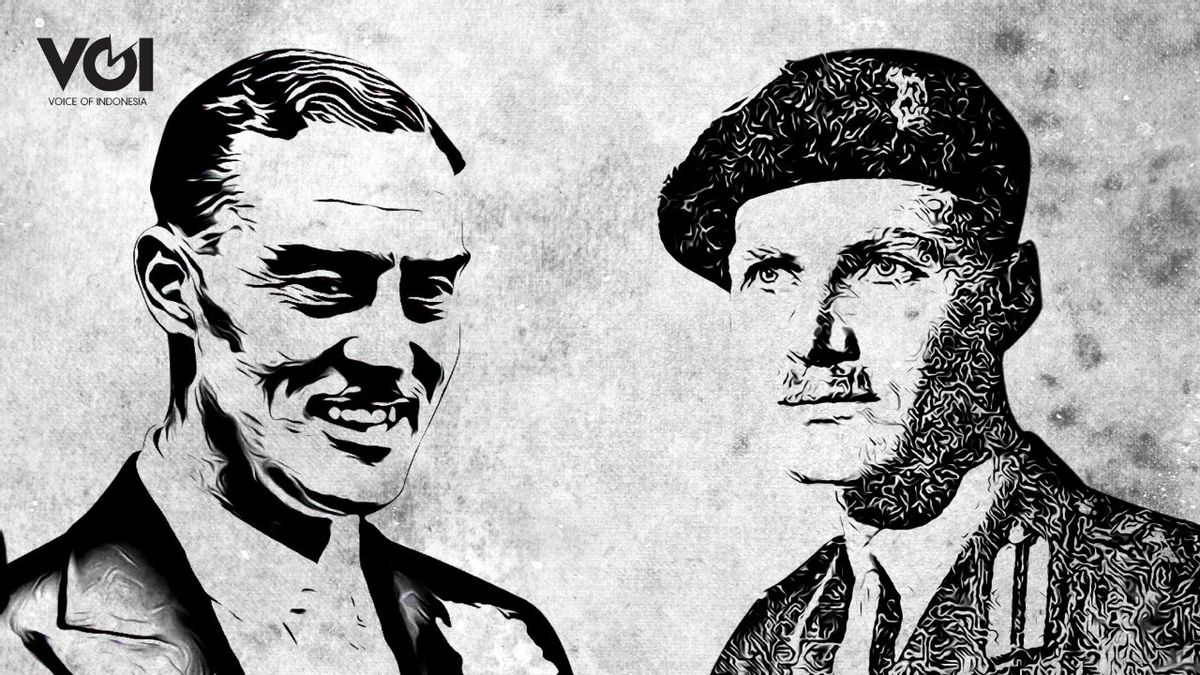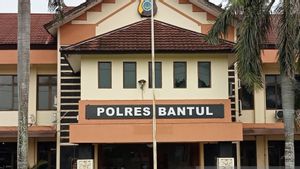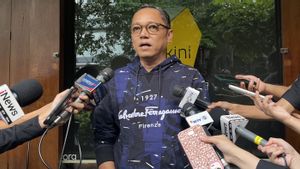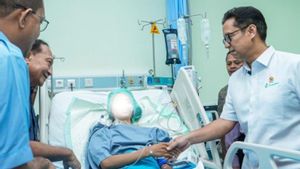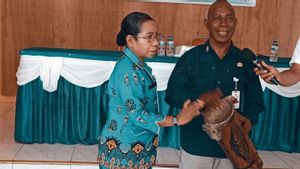Continued from VOI's signature series, "Becoming a National Hero". In the article "Maj. Gen. Sungkono in the Memories of the Nation's Collective Who Wants to Be Big", we have discussed how Major General Sungkono's great struggle sank and was forgotten. In this article, we find out what heroes have the same fate as Sungkono. Could it be, this nation that aspires to be big is not that good at recording hero's services in its collective memory.
It was late in the evening, when riots broke out around Internatio, 30 October 1945. The agreement between President Sukarno and Britain - as representatives of the allies - to stop shooting did not reduce the 'fighting' between allied forces and the Indonesian people and the People's Security Army (TKR) .
In the midst of the chaos, a group of Indonesian representatives, Resident Soedirman and Cak Doel Arnowo, who is also the Chairman of the Indonesian National Committee (KNI), held a meeting inside Internatio. There, they were about to meet a high-ranking British officer, General Aubertin Walter Sothern Mallaby.
The actual meeting will discuss the armed clashes that continue to occur even though an agreement has been made between President Sukarno and the allied forces. However, General Mallaby failed to enter the building because the youth in the Indonesian group wanted Captain Shaw, a young officer, to represent Britain in the negotiations.
General Mallaby was waiting in the car. From inside the cabin, General Mallaby witnessed the ups and downs of the fighting tension around Internatio. Things started to subside again when a grenade was thrown from inside the building. The grenade throw was greeted by gunfire from outside the building.

Abdul Azis bullets for General Mallaby
After a while, around 8:30 p.m., the situation subsided again. The intensity of the firefight began to decrease. However, that was the very last moment of General Mallaby's life as well as the moment when a hero appeared in history: Abdul Azis. He is a fighter who is a member of the Indonesian People's Youth (PRI).
When the shootout subsided, General Mallaby looked around by looking out of the car. It was then that Abdul Azis quietly approached the car carrying General Mallaby and two other British officers. Shots were fired. The bullet shot straight at General Mallaby, who is said to have died within 15 to 30 seconds.
Realizing that the bullet had killed General Mallaby, Abdul Azis reported to Cak Doel Arnowo. "Wes, Cak. Wes is not OK (Yes, Cak. I have done it)," said Abdul Azis' son, Muhammad Chotib, imitating his father's narrative, as quoted by historia.id.
Not many know this story. However, Chotib's statement is believed to be authentic. Historical researcher Ady Erlianto Setyawan said the story of Abdul Azis and General Mallaby's death was also told by Amak Altuwy, a journalist who was also an eye witness in the chaos on the night of Mallaby's death.
This story was told by Altuwy when the perpetrators of the Surabaya battle were still alive. Apart from that, the story of Abdul Azis was also included in the book 10 November 1945: The Gelora of Indonesian Heroism by Brigadier General Barlan Setiadijaya. The book is known as the most comprehensive study of the Surabaya battles.
"If he (Abdul Azis claims) is lying, surely figures like Ruslan Abdulgani who were also at the TKP when Mallaby was killed would open their voices. And people at the level of Brigadier General Barlan Setiadijaya would not include that story in his book, "said Ady, still written by historia.id.
Previously, General Mallaby's death was told in many versions. In addition to the story of the unnamed bullets, General Mallaby was also told that he died from a missed grenade thrown by his own men. The story of the grenade was written by JGA Parrot in Who Killed Brigadier Mallaby (1975).
What is clear is that General Mallaby's death was the biggest streak during the British 'visit' to Indonesia. The incident is also believed to have sparked the big war in Surabaya one month later, November 1945.
The death of another general, the birth of another hero
Another story related to the November 10 war in Surabaya. About another undocumented hero. He is Goemoen, a member of the Indonesian People's Rebellion Front (BPRI). Goemoen is told as the figure behind the death of General Robert Guy Loder Symonds.
General Symonds was the commander of the British army artillery detachment in Surabaya. General Symonds was forced to take to the field due to the fierce battle in Surabaya. During the day's battle, General Symonds intended to monitor the combat situation from the air.
He also took off from Morokembangan Airport on a Mosquito reconnaissance plane. After takeoff, General Symonds' plane got disturbed from the mainland. The plane was shot by arek-arek Surabaya until it crashed around the Morokembangan Airport runway.
According to Barlan Setiadijaya in Merdeka or Mati di Surabaya (1985), it was the shot of a Surabaya arek named Goemoen that made General Symonds' plane crash. It was told that that morning, Goemoen saw the Mosquito plane passing nearby. Goemoen also took a cannon from the Japanese army from Don Bosco's arsenal.
General Symonds is trapped in a burning fuselage. His body was then buried in Surabaya, before being moved to the Commonwealth War Cemetery Blok V, Menteng Pulo, South Jakarta. He is buried right next to the tomb of Lieutenant Osborne, the flight pilot of the ill-fated mosquioto plane who died with him.
The deaths of two important generals were a huge disgrace for Britain. A disgrace that also brought up the name arek Surabaya in a fierce battle. It is nothing. The British came to Indonesia with Javanese, with the Gurkha troops they were proud of. However, Maj. Gen. Sungkono, Abdul Azis, and Goemoen as well as thousands of other Surabaya arek have successfully suppressed the winning unit of the second world war.
Next article: "Becoming a National Hero in a Forgetful Country"
The English, Chinese, Japanese, Arabic, and French versions are automatically generated by the AI. So there may still be inaccuracies in translating, please always see Indonesian as our main language. (system supported by DigitalSiber.id)
